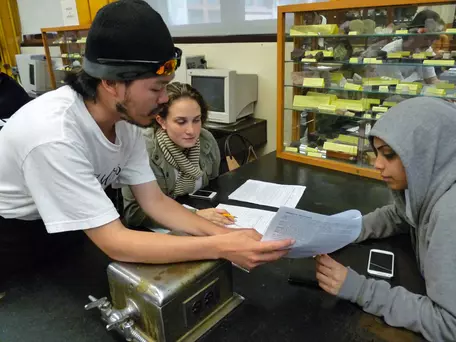Initial Publication Date: September 22, 2016
Support Students through to Graduation
There are many interconnected aspects to supporting students through STEM programs from admission all the way to attaining their degree. Critical support may come from interactions in the classroom, in co-curricular activities, or as part of student support services outside of academics. In addition, since no two students are alike, the mix of support structures that each will need are different as well. It is important to have a constellation or web of supports available to meet the varying needs of the students who will enter your courses and programs.
Provide Academic Supports

×
- First-generation college students
- English language learners
- Support throughout their entire college experience
- Use bridging programs to provide a jump start
- Use engaged pedagogies.
Build a Sense of Community

×
- Understand the challenges posed by stereotype threat and solo status
- A sense of community helps develop intrinsic motivation
- Students' STEM identity typically builds on their sense of belonging within a STEM community
- Adapt courses to be welcoming to students with disabilities
- Validate students' worth
- Develop self-awareness of personal culture and biases
Teach Students How to Learn

×
- Self-regulated learning can improve academic performance and develop life-long learning skills
- Developing metacognitive skills helps students understand factors that influence their thinking
- The affective domain includes factors such as student motivation, attitudes, perceptions and values
- Learning how to learn is valuable across the whole academy
- Teach for learning
Prioritize Advising and Mentoring

×
- Practice good advising and mentoring
- Supportive advising is critical during the transfer process
Facilitate Real-World Experiences

×
- Encourage internships and other pre-professional opportunities
- Engage Students in Research
- Develop students' inquiry skills
- Integrate research into teaching practice
- Provide research experiences for 2YC Students.
- Have students measure and investigate
Foster Interdisciplinary Learning

×
- Addressing societal issues requires content from multiple disciplines
- Sustainability can provide a broad interdisciplinary theme for coursework
- Foster students' integrative and interdisciplinary learning
- Teach STEM content and media development together
